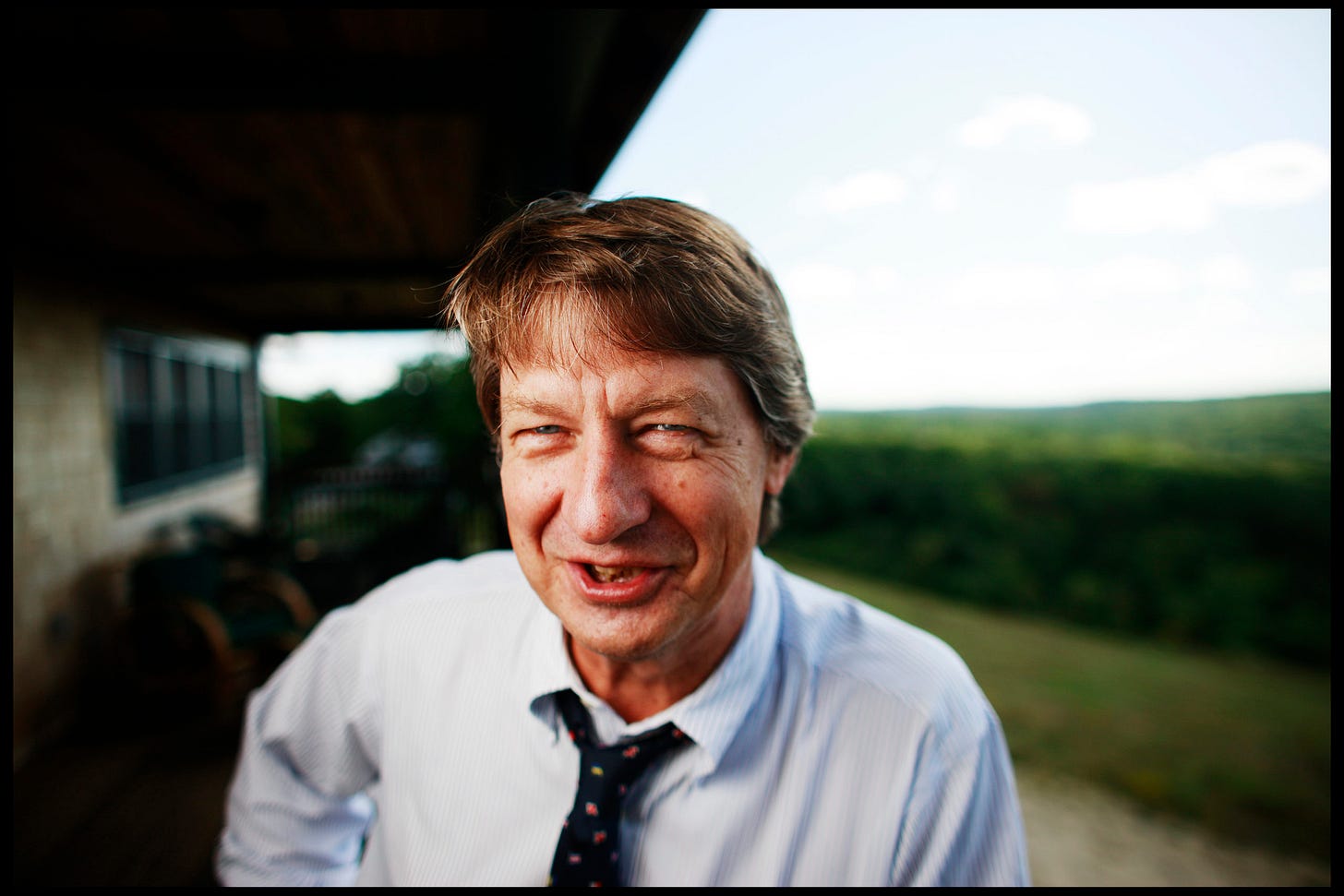Why Writers Loved P.J. O’Rourke
His greatness, his goodness.

P.J. O’Rourke died today. He was only 74—I think he always seemed more youthful than his years because he had kids late in life, and nothing keeps you young like running around after children.
He was, to various writers in my world, a godfather, a mentor, a big brother, a best man. I was never especially close to P.J.—many of my friends knew him much better than I did. But I read him for many years. I edited him a few times. We hung out.
And so, if you’re wondering why half of the journalists in America are in mourning today, I want to take a stab at explaining. Which is hard to do, because the answer is so simple:
It’s because P.J. was great.
I came into the world of writing in 1997. By that time, P.J. had been a star for a generation.
He started writing in the alt-weekly world. His big break came when he took over National Lampoon. From there he became one of the best magazine writers of the ’80s.
P.J. was most famous for being a funnyman, but early on he did all kinds of writing. He reported. He did longform. He wrote books. And this is a big part of why writers admired him so much: P.J. could hit to all fields with power. And while he became a star, with the kind of career that most of us only dream of, he came up the hard way. He did not emerge fully formed from William Shawn’s head like Athena. He worked for it.
Let me put it this way: If you’re a writer and you look at Joan Didion, you see an untouchable prodigy, someone who might as well be from another planet.
But when you looked at P.J. O’Rourke you saw a craftsman and you thought to yourself, “If I work hard enough and hit the ball cleanly, on every at bat, every day, for a few decades . . . well, then maybe I could be like P.J.”
So that’s one reason we loved him.
Another is that he was a professional’s professional.
Here’s a secret of the trade: The better a writer is, the easier he is to edit.
Bad writers will haggle with editors over every comma. The best writers (a) need very little editing and (b) are perfectly open to edits because they see and appreciate when a phrase or a thought has been improved.
P.J. was a joy to edit. Collegial, professional. The kind of writer who makes you a better writer once you get to look under the hood at his process. The kind of writer with whom it is a privilege to work.
I suspect that the biggest reason P.J. was beloved by his peers and colleagues was his openness and kindness.
For many years he was as close to being a household name as magazine writers get. And yet he was never a big shot. No matter who you were, he’d talk to you.
When he was stopped on the street by admirers he was as gracious as you could hope for. If you were a staff assistant at a magazine and you approached him, he’d respond as freely and generously as if you were a longtime colleague.
And not just to exchange pleasantries. He’d talk to you about writing, or an idea—anything, really—thoughtfully, openly. He was neither superior nor patronizing. There was no bs. He’d talk to you like you were a real writer—just another member the guild, like him.
There are few gifts an accomplished writer can give his juniors that are more treasured.
P.J. spent his life bestowing such respect on a constant stream of writers and editors and researchers and fact-checkers and all of the sundry tradespeople who populate the world of letters.
P.J. was unusually beloved in my world. I know only a handful of writers who do not revere him. I’ve never met anyone who was not fond of him.
There’s an Oscar Wilde line about how “anybody can sympathize with the sufferings of a friend” but it takes “a very fine nature to sympathize with a friend’s success.” Gore Vidal’s version: “Whenever a friend succeeds, a little something in me dies.” These are very real phenomena. And yet they never touched P.J.
No matter how much success he saw, P.J.’s peers were never jealous. There were never any knives out for him. Quite the opposite, actually. We cheered for him. We admired him.
Because P.J. was what every writer hoped we might someday be: The best version of ourselves. Talented and kind. A champion for others. A workhorse. A wit and a gentleman. A writer. A tremendous writer.
He is already missed.


